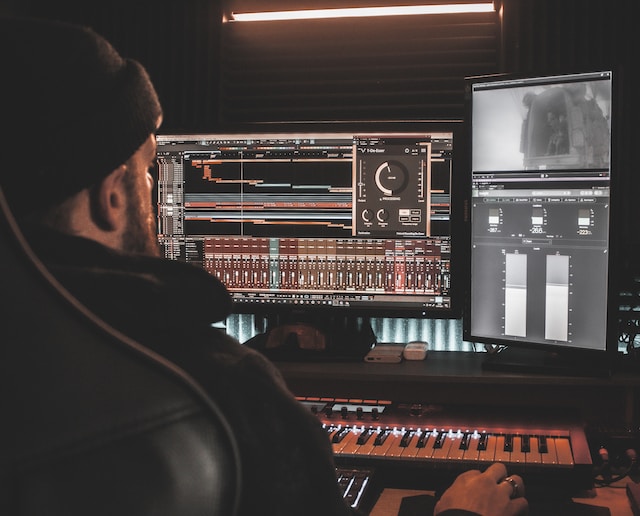Music has been a part of human civilization for centuries. It has evolved significantly over time, from the first recordings on wax cylinders to the modern digital age. Music production has played a vital role in this evolution. In this article, we will take a closer look at music production and explore how it has evolved from the past to the present.
The Origins of Music Production
The Early Years of Music Production
The origins of music production can be traced back to the early years of the 20th century. In those days, music was recorded on wax cylinders, and the process was extremely time-consuming and difficult. The recording equipment was large and heavy, and the sound quality was poor.
The Introduction of Magnetic Tape
In the 1930s, magnetic tape was introduced, which revolutionized music production. Magnetic tape allowed for easier recording and editing of music, and it was much more reliable than wax cylinders. The sound quality was also much better, which made music more enjoyable to listen to.
The Rise of Digital Music Production
The Introduction of Digital Audio Workstations
In the 1980s, digital audio workstations (DAWs) were introduced, which changed music production forever. DAWs allowed for the recording, editing, and mixing of music using computers. This made the process faster, more efficient, and more accessible to a wider range of people.
The Emergence of Electronic Music
The rise of digital music production led to the emergence of electronic music, which is created using electronic instruments and technology. Electronic music is popular in various genres, including house, techno, and trance.
Modern Music Production
The Popularity of Online Music Production
In recent years, online music production has become increasingly popular. Online platforms like SoundCloud and Bandcamp allow musicians to upload and share their music with a global audience. This has made it easier for musicians to get noticed and build a fan base.
The Use of AI in Music Production
Artificial intelligence (AI) is becoming more prevalent in music production. AI algorithms can be used to create music, analyze songs, and even predict which songs will be popular. While some people see this as a threat to the creativity of musicians, others see it as a way to enhance the creative process.
The Future of Music Production
The Integration of Virtual Reality
Virtual reality (VR) is likely to play a big role in the future of music production. VR technology could allow musicians to create immersive live performances that transport audiences to different worlds.
The Use of Blockchain Technology
Blockchain technology could revolutionize the way music is produced and distributed. Blockchain technology can be used to ensure that musicians are paid fairly for their work and that their music is protected from piracy.
Conclusion
Music production has come a long way since the early days of wax cylinders. From the introduction of magnetic tape to the rise of digital music production, music production has continued to evolve over time. The future of music production looks exciting, with the integration of VR and the use of blockchain technology. It will be interesting to see how music production continues to evolve in the coming years.
FAQs
- What is music production? Music production involves the process of creating and recording music. It includes tasks such as writing, arranging, recording, mixing, and mastering music.
- How has music production evolved over time? Music production has evolved significantly over time, from the early days of recording on wax cylinders to the current digital age. The introduction of magnetic tape and digital audio workstations have revolutionized the way music is recorded and edited. Online music production platforms and the use of artificial intelligence are also changing the landscape of music production.
- What is a digital audio workstation? A digital audio workstation (DAW) is a software application that is used to record, edit, and mix music using a computer. DAWs are used extensively in modern music production and have replaced traditional recording equipment such as reel-to-reel tape machines.
- What is electronic music? Electronic music is a genre of music that is created using electronic instruments and technology. It is characterized by its use of synthesizers, drum machines, and other electronic devices to create unique sounds and rhythms.
- How is artificial intelligence used in music production? Artificial intelligence (AI) is used in music production to analyze music, predict trends, and even create music. AI algorithms can be trained to recognize patterns in music, which can be used to create new music or improve existing tracks. AI is also used to automate tasks such as mixing and mastering, which can save time and improve efficiency in music production.
Source: http://www.ikissedavampire.com/









